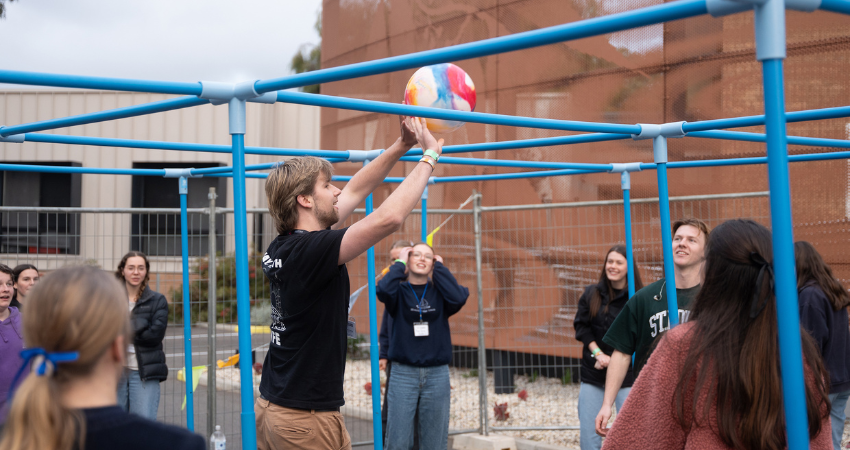Have you thought about or even experienced loneliness recently? With all the other challenges experienced in our community it can be easy to overlook, but growing evidence indicates that loneliness is a significant public health issue, and we should be paying more attention to it.
What is loneliness?
Given the varied experiences of loneliness, there isn’t a shared definition in Australia. We often refer to the Ending Loneliness Together organisation’s definition that says, “Loneliness is a distressing feeling we get when we feel disconnected from other people, and desire more (or more satisfying) social relationships”.
Contrary to common understandings, loneliness often relies on the meaningfulness or quality of interactions, rather than just the quantity of friendships. This explains why people can experience loneliness even when they are among friends.
While feeling temporary feelings of loneliness (called ‘episodic loneliness’) is quite natural, it can become problematic when it is experienced frequently and consistently for a longer period (‘chronic loneliness’). Research shows that chronic loneliness can lead to significant physical and mental health consequences that have been compared to smoking 15 cigarettes a day, as well as increased risks of heart disease, stroke, depression and cognitive decline.
What causes loneliness?
A common misconception is that loneliness results from a personal deficit or failure on the part of the individual when in fact it can result from a range of factors outside our control. Individual factors can include major life events, health and income, and there are other community-wide factors such as fewer opportunities for social connection (activities), difficulty accessing support services and inadequate public transport, just to name a few. There are also ‘society-wide’ challenges, like our increasingly individualistic society, social and cultural norms (such as the perceived inappropriateness of talking with strangers), and work/life balance challenges (including shift work and overtime).
Who is lonely?
We started our survey research with Square Holes (a cultural and market researcher) in early 2020, to better understand the people most affected by loneliness in South Australia. Uniting Communities has conducted 11 surveys since, asking respondents how often they feel lonely, lack companionship, feel left out or isolated.
The data demonstrates that:
- women are more likely to report loneliness than men
- the higher your income, the less likely it is that you will report chronic loneliness
- On average 57% of South Australians report experiencing loneliness (often or sometimes)
- On average young people aged 18–24 experience the highest rates of loneliness (often or sometimes), as high as 91% in December 2023
- On average, people in their fifties (particularly aged 50–54) experience disproportionally high rates of loneliness (often or sometimes), as high as 74% in March 2021
- On average, rates of loneliness are higher in metropolitan areas than in regional areas although this does vary.
The evidence suggests there is a lack of awareness of loneliness in the community coupled with stigma which could suggest more people are experiencing loneliness but feel unable to report it.
Although older people have not reported high rates of loneliness in our own research, we know from other research that this demographic is particularly affected. This apparent disparity may be because our research is online, and therefore targeting a particular group of older people who are more connected.
But what about the solutions?
Reducing loneliness will require a whole of community and whole government approach where we all play a part.
There are many ways we as members of the community can champion action to address loneliness, including:
- Creating a culture that actively seeks connection –We can all play a part by actively connecting with others, whether it’s talking with a neighbour, volunteering in the community or reaching out to someone we haven’t spoken to in a while
- Educating people on the importance of social health – Although it is a relatively new concept, ‘social health’ is gaining more attention as a key measure of overall health alongside physical and mental health
- Spreading awareness of loneliness –A public awareness campaign that draws attention to loneliness and the many people affected by it would help to increase awareness and break down the stigma.
We encourage you to start a conversation with your congregations, whether it is before a service or through the creation of a working group to discuss how your church can help build connections and reduce loneliness.
This article is republished from the Autumn 2025 edition of New Times, the magazine of Uniting Church Synod of Southern Australia.






